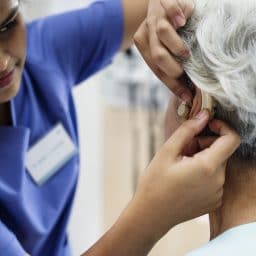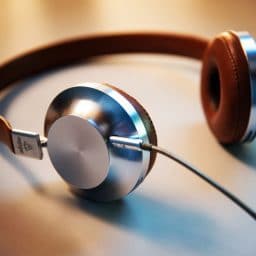Can Holiday Toys Damage a Child’s Hearing?

How exciting was it to watch your child open the gift you chose special for them at 3 Trolls Games & Puzzles over the holidays? While your child may love playing with it, there’s a chance the toy could cause damage to their auditory system, experts warn. Below we cover how to know if a…
In One Ear and Out the Other: How Hearing Loss Can Affect Memory

Hearing loss makes it hard to connect with the world around you. While it often starts gradually, if you experience hearing loss, you may notice some of these common signs: Family or friends have remarked on your hearing. It seems like people mumble a lot, or you need them to repeat themselves often. You have…
Check Your Hearing For Audiology Awareness Month

October has been Audiology Awareness Month! You know what that means: there’s no better time to care for your hearing health. Left untreated, hearing loss is linked to social withdrawal, anxiety, feelings of loneliness, depression, falls and even dementia. We explore these connections below. Anxiety & Social Withdrawal When you can’t hear well, it can…
Is There a Relationship Between Hearing Loss & Anemia?

Hearing loss is common, affecting an estimated 48 million Americans. But despite its prevalence, not everything about it is well understood. One comorbidity currently being researched is iron-deficiency anemia. We explore this connection below. What Is Anemia? Anemia is a condition characterized by the blood not having an adequate amount of healthy red blood cells….
Could Your Exercise Routine Cause Hearing Loss or Tinnitus?

Is there any better feeling than wrapping up a workout at Skill of Strength? While there’s no doubt exercise is great for your body and mind, if you’re not careful, your routine could be harming your hearing. We review how this happens and how to keep your ears safe below. Heavy Lifting When exerting yourself…
Sudden Hearing Loss Can Be Scary, But Treatment Is Available

Have you ever woken up in the morning unable to hear, or felt your hearing deteriorate over the course of a day or two? If so, you suffered from sudden hearing loss. While sudden hearing loss can be scary, there are treatment options available. Below we review what sudden hearing loss is, what causes it,…
Research Shows Tinnitus Is More Severe with Hearing Loss

Do you ever notice an unexplainable ringing, roaring, hissing, whistling, buzzing or humming sound with no source? If so, you may be experiencing tinnitus. Tinnitus is different for everybody. Sometimes it affects one ear, and sometimes it affects both. For some, it is quiet, and for others it is like standing under bells. New research…
What Is Mild Hearing Loss?

When you hear the words “mild hearing loss,” you may think of a harmless condition. But the truth is, even a mild loss of hearing can greatly impact your daily life, including your relationships and your health. Below we review what you need to know about mild hearing loss. What Does “Mild Hearing Loss” Refer…
New Study Further Links COVID-19 with Hearing Loss & Tinnitus

Even though researchers have learned a lot about COVID-19 over the past year, they are just beginning to look at the long-term impact of the virus. New research out of the University of Manchester and NIHR Manchester Biomedical Research Centre (BRC) used data gathered throughout the pandemic to further link COVID-19 with hearing and auditory…
4 Ways to Protect Your Hearing

While there is nothing you can do about your genetics or getting older, there is one cause of hearing loss you can do something about – exposure to noise. Below we review four things you can do protect your ears. Understand Noise-Induced Hearing Loss Sound is measured in decibels (dB). Anything measuring more than 85…